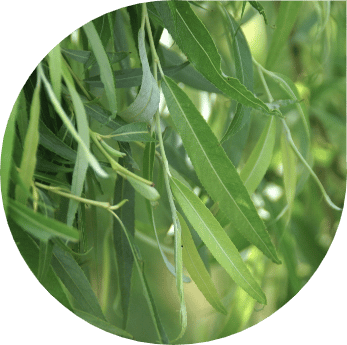Biomass Feedstocks Innovation Programme
The Biomass Feedstocks Innovation Programme is a £36 million programme, funded through the Department for Energy Security and Net Zero’s £1 billion Net Zero Innovation Portfolio, which aims to accelerate the commercialisation of innovative clean energy technologies and processes through the 2020s and 2030s.
The Biomass Feedstocks Innovation Programme aims to increase the production of sustainable UK biomass feedstocks.
Under Phase 1 of the programme, 25 projects were awarded a share of £4 million government funding to produce project plans for innovations that, if implemented, would make a positive material contribution to UK feedstock supply.
Under Phase 2 of the programme, 12 projects have been awarded a share of £32 million, taking the innovation projects from the design stage through to the demonstration stage.
Biomass Connect Information Hub
The Biomass Connect Innovation and Information Hub is a demonstration and knowledge-sharing initiative to showcase best practice and innovations in land-based biomass feedstock production to support the development of the UK biomass industry.

The project has four primary aims:
Through the platform, the project is building a UK-wide, cohesive, regionally based community who will contribute to the development, establishment and operation of the platform. Building this focal point for the industry will support the ambitious scaling up of both the bioenergy industry itself and the scale of planting which is required to align with the Committee on Climate Change’s modelling for net zero, which anticipates expanding from 10,000 ha to 700,000 ha by 2050.
Biomass Connect Demonstrator Hubs
The project comprises eight demonstration hubs across the four nations of the UK, in Ceredigion, South Ayrshire, Buckinghamshire, Devon, Edinburgh, County Down, Northumberland and Yorkshire.
Each site grows a wide range of short-rotation trees, perennial grasses, and forbs. These are fast-growing crops requiring minimal inputs but producing large amounts of biomass. There are a range of end uses for biomass including combustion for heat and power, construction and packaging, cosmetics and food supplements, and the production of liquid fuels and platform chemicals.
The project compares crop and variety performance across UK regions and demonstrates innovations in breeding, cultivation, and harvesting and processing technologies with the potential to maximise the social, economic, and environmental benefits of biomass.
Biomass Crops and Cultivation
Biomass crops vary greatly in size and form, ranging from towering 30-meter trees to fast-growing grasses. While they typically demand limited inputs and minimal cultivation, specific requirements vary among different crops, soil types, and climates (the impacts of different soils and regional climate variations is one reason we have our demonstrator hub sites distributed around the UK). Explore the Crop Information section of this website for comprehensive details on biomass crops featured in the Biomass Connect trials, as well as other promising candidates.
Project partners
This project involves researchers and industry partners from UKCEH, Rothamsted Research, Aberystwyth University, Scotland’s Rural College (SRUC), the Agri-Food and Biosciences Institute (AFBI), Crops for Energy, Newcastle University, NIAB and Bio-Global Industries.
An independent, not-for-profit research institute. The UKCEH provide the data and insights that researchers, governments and businesses need to create a productive, resilient and healthy environment.
A world-leading, non-profit research centre that focuses on strategic agricultural science to the benefit of farmers and society worldwide.
Teaching and Research University in Wales, UK.
The Agri-Food and Biosciences Institute (AFBI) is an arms-length body of the Department of Agriculture, Environment and Rural Affairs (DAERA). It is a multi-disciplinary scientific organisation involved in high technology research and development, as well as diagnostic and analytical testing for DAERA, other Government departments, public bodies and the agri-food industry both locally and globally.
Rural College with a mission to be Scotland’s enterprise university at the heart of a sustainable natural economy.
https://www.crops4energy.co.uk/
Crops for Energy is one of the UK's leading authorities on energy crops and their use in biomass energy schemes. We provide balanced, authoritative, and independent consultancy support and project management services.
Teaching and Research University in Newcastle, UK.
Waste to Energy
Plant science research company based in Cambridge








